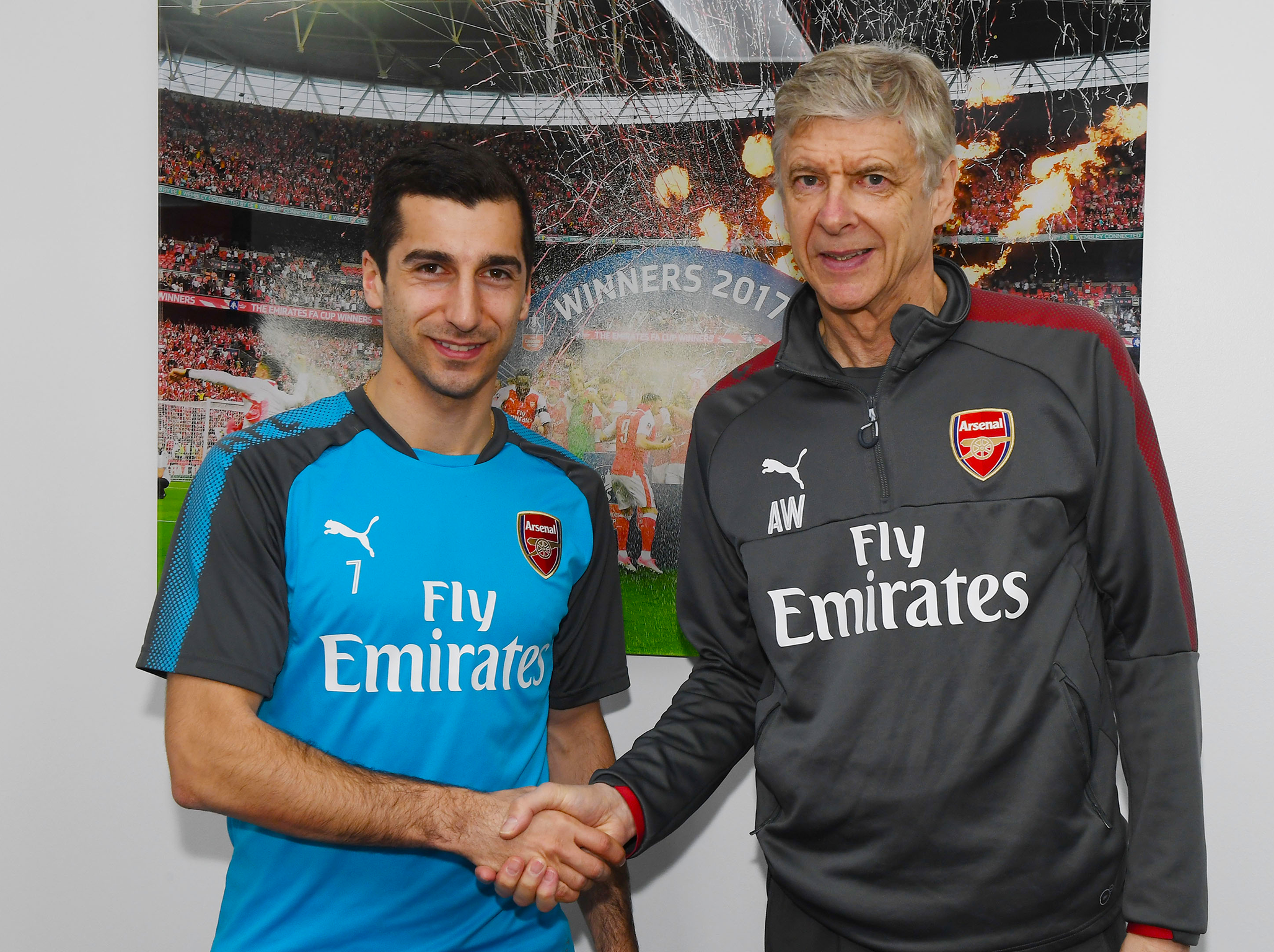Arsene Wenger defends Arsenal's transfer policy after Henrikh Mkhitaryan move – but are his principles waning?
As he approaches the twilight years of his managerial career, it is tempting to wonder whether Wenger's transfer policy is being relaxed a little

Your support helps us to tell the story
From reproductive rights to climate change to Big Tech, The Independent is on the ground when the story is developing. Whether it's investigating the financials of Elon Musk's pro-Trump PAC or producing our latest documentary, 'The A Word', which shines a light on the American women fighting for reproductive rights, we know how important it is to parse out the facts from the messaging.
At such a critical moment in US history, we need reporters on the ground. Your donation allows us to keep sending journalists to speak to both sides of the story.
The Independent is trusted by Americans across the entire political spectrum. And unlike many other quality news outlets, we choose not to lock Americans out of our reporting and analysis with paywalls. We believe quality journalism should be available to everyone, paid for by those who can afford it.
Your support makes all the difference.Arsene Wenger once claimed that the price of a player was determined by four factors: their talent, their ability to improve the side they were moving to, their resale value, and their age. For two decades, this principle has dictated his transfer policy, one driven not simply by short-term expediency but by long-term sustainability. Wenger seeks value, yield, a return. He may even be one of the few people in the United Kingdom who can convincingly explain what the word ‘amortisation’ means.
Yet as he approaches the twilight years of his managerial career, it is tempting to wonder whether this policy is being relaxed a little. The arrival of 29-year-old Henrikh Mkhitaryan from Manchester United may well be followed in short order by the signing of 28-year-old Pierre-Emerick Aubameyang from Borussia Dortmund. And even if Wenger admitted on Tuesday that there was still a long way to go to seal an Aubameyang deal, the very fact that Arsenal have pursued two attacking players nearing the age of 30 – regardless of how good they may be – is a phenomenon virtually without precedent in the Wenger era.
The examples of Petr Cech and Mathieu Debuchy demonstrate that Wenger is occasionally tempted into buying older players, even if his belief that their higher wages, physical decline and minimal resale value make them less appealing prospects. Yet they are very much the exception rather than the rule.
If Aubameyang signs, it would be the first time since summer 2012, and the arrival of Mikel Arteta and Andre Santos, that Arsenal have signed (on a permanent basis) two players aged 28 or over in the same transfer window. Mkhitaryan, meanwhile, is the oldest attacking player Wenger has bought this century, since the 31-year-old Davor Suker was purchased from Real Madrid in 1999.
So does this represent a shift in thinking? Perhaps. On the other hand, Wenger’s hand was partially forced by the Alexis Sanchez contract situation, and the prospect of losing a star player without securing a replacement. Wenger’s insistence that it was good business to exchange a player with six months remaining on his contract for one with 42 months remaining was an indication that his preoccupation with value remains intact.
“We were in a position where we lose a player who has no value on the market,” he said. “Against a player who has a value on the market, because he has a contract with us. At least, on that front, we exchanged a player with a player who is one year younger. So overall, I agree with you. It’s better to buy a player who is 23 or 24. But we didn’t spend any money here, and we got a quality player.”
Wenger is justifiably proud of his record of developing young talent, and made special mention during his press conference ahead of the EFL Cup semi-final second leg against Chelsea of the number of academy products enjoying productive seasons: Ainsley Maitland-Niles, Reiss Nelson, Alex Iwobi, Hector Bellerin, Jack Wilshere.
“We are the only team with four or five players in the starting line-up who came from the club,” he said. “If you look at the instability now in the Premier League, you don’t encourage managers to take gambles with young players. When they make their team on Friday night, they go more for security, and security is experience.
“It’s important that we keep the basis of our focus, which is getting people from inside the club. The way football is going is not necessarily to buy players for a huge amount of money, but to have players who care about your club, and have a sense of belonging. I would rather encourage the club to push more the quality of our youth work, rather than going in a way where it’s not all about millions, and not so much about values.”
Wenger is a tireless evangelist for the virtues of young players. That won’t change. But perhaps, in line with some of the other tactical and structural accommodations he has made over the last couple of years, the signing of Mkhitaryan and the prospective signing of Aubameyang represent just the subtlest shift away from his fixation with youth. In its own strange way, it may even be a tacit acknowledgement that while Arsenal the football club has all the time in the world to bring its talent to fruition, Arsene the manager may not.
Join our commenting forum
Join thought-provoking conversations, follow other Independent readers and see their replies
Comments